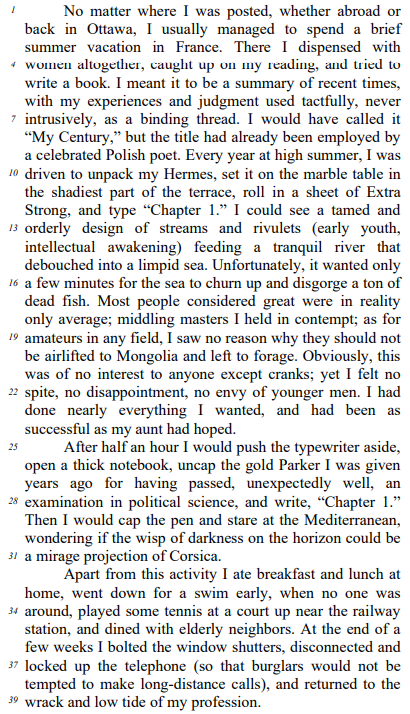Questões de Concurso
Foram encontradas 2.241 questões
Resolva questões gratuitamente!
Junte-se a mais de 4 milhões de concurseiros!
Plurilingualism and translanguaging: commonalities and divergences
Both plurilingual and translanguaging pedagogical practices in the education of language minoritized students remain controversial, for schools have a monolingual and monoglossic tradition that is hard to disrupt, even when the disrupting stance brings success to learners. At issue is the national identity that schools are supposed to develop in their students, and the Eurocentric system of knowledge, circulated through standardized named languages, that continues to impose what Quijano (2000) has called a coloniality of power.
All theories emerge from a place, an experience, a time, and a position, and in this case, plurilingualism and translanguaging have developed, as we have seen, from different loci of enunciation. But concepts do not remain static in a time and place, as educators and researchers take them up, as they travel, and as educators develop alternative practices. Thus, plurilingual and translanguaging pedagogical practices sometimes look the same, and sometimes they even have the same practical goals. For example, educators who say they use plurilingual pedagogical practices might insist on developing bilingual identities, and not solely use plurilingualism as a scaffold. And educators who claim to use translanguaging pedagogical practices sometimes use them only as a scaffold to the dominant language, not grasping its potential. In the United States, translanguaging pedagogies are often used in English-as-a-Second Language programs only as a scaffold. And although the potential for translanguaging is more likely to be found in bilingual education programs, this is also at times elusive. The potential is curtailed, for example, by the strict language allocation policies that have accompanied the growth of dual language education programs in the last decade in the USA, which come close to the neoliberal understanding of multilingualism espoused in the European Union.
It is important to keep the conceptual distinctions between plurilingualism and translanguaging at the forefront as we develop ways of enacting them in practice, even when pedagogies may turn out to look the same. Because the theoretical stance of translanguaging brings forth and affirms dynamic multilingual realities, it offers the potential to transform minoritized communities sense of self that the concept of plurilingualism may not always do. The purpose of translanguaging could be transformative of socio-political and socio-educational structures that legitimize the language hierarchies that exclude minoritized bilingual students and the epistemological understandings that render them invisible. In its theoretical formulation, translanguaging disrupts the concept of named languages and the power hierarchies in which languages are positioned. But the issue for the future is whether school authorities will allow translanguaging to achieve its potential, or whether it will silence it as simply another kind of scaffold. To the degree that educators act on translanguaging with political intent, it will continue to crack some openings and to open opportunities for bilingual students. Otherwise, the present conceptual differences between plurilingualism and translanguaging will be erased.
Source: GARCÍA, Ofelia; OTHEGUY, Ricardo. Plurilingualism and translanguaging: Commonalities and divergences. International Journal of Bilingual Education and Bilingualism, v. 23, n. 1, p. 17-35, 2020.
Garcia e Otheguy (2020)
Within the provided text, identify the conjunction that simultaneously introduces an opposing viewpoint while emphasizing causality between two ideas:
Sorry for the delayed response
01 Have ___ (1) e-mail you’ve been meaning (but not really) to reply to? Read below for some
02 reasons why your response has been delayed:
03 • I totally meant to respond to this earlier, but I didn’t know ___ (2) answer to your question
04 and I kept not caring enough to ask anyone. Now ___ (3) weird amount of time has passed,
05 so I’m going to loop Laura (cc’d) into this e-mail thread to see if she can handle this. Laura?
06 • Sorry for ___ (4) delay! I put off answering your e-mail until I had ___ (5) even more tedious
07 task that I wanted to avoid. Thanks!
08 • So sorry that I’m just getting to this now. There were six other people on this e-mail thread
09 and I was hoping that one of them would answer your question and I could just go on living
10 my life.
(Available at: https://www.instagram.com/p/CsHm2YnteFa/ – text especially adapted for this test).
Analyze the following excerpt from the text: “(...) your response has been delayed” (l. 02). Mark the alternative below that shows the sentence correctly rewritten in an interrogative structure and in the same verb tense.
Concerning the use of adjectives, Swan stablishes that the following sentences are correct or incorrect.
I. A fat old white horse.
II. A big grey woolen sweater.
III. New Italian boots.
IV. A little modern square brick house.
The correct alternatives are:
Keeping in mind the ideas expressed above and the linguistic aspects of the text, judge the following item.
The verb “prompted” (in the second sentence of the third
paragraph) conveys the same idea as restrained.
Text to answer the question.

GALLANT, Mavis. Let it Pass. In: Montreal Stories.
Toronto: McClelland & Stewart, 2004. (adapted)
Considering the vocabulary in the text, mark the statements below as right (C) or wrong (E).
In “middling masters I held in contempt.” (line 18) the
underlined word is a verb.